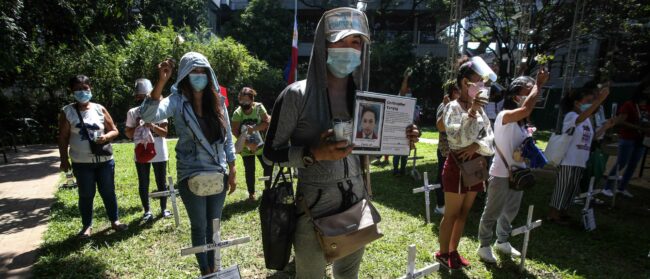In recent weeks talks in Malaysia have swelled surrounding the government’s plan to ratify the International Convention on the Elimination of All Forms of Racial Discrimination (ICERD). While the move has been widely supported in the ethnically-diverse country, it has sparked push back from certain members of the opposition.
The ICERD was adopted at the UN General Assembly on 21 September 1965 and calls on signatories to adopt measures for the elimination of all forms of racial discrimination based on race, colour, descent, or national or ethnic origin. Malaysia remains one of only 14 countries worldwide that has yet to ratify the Convention and one of only three In the ASEAN region, alongside Brunei and Myanmar.
But not everyone supports the newly elected government’s initiative to bring Malaysia into the pact.
The weekend saw protests organised by opposition parties UMNO and PAS’s youth wings, who oppose the the ratification of the convention on the grounds that it could impact the rights of ethnic Malays, the largest majority in Malaysia.
This followed on from last week, when around 100 representatives from a conservative Malay-Muslim group held a protest outside Parliament and handed over a memorandum. The group, an umbrella organisation of around 300 Muslim NGOs known as Ummah, were photographed holding a coffin, which reportedly symbolised the “death” of Malay-Muslims in the country, local reports stated.
“If the government ignores our memorandum, we will move, we will mobilise more people to rise and oppose ICERD,” Aminuddin Yahya, chairperson of Ummah, said at the time.
In response to the protest, Prime Minister Mahathir Mohamad stated that negotiations should be held with communities of all races, before the government formally signs the treaty.
Malaysia’s latest push for the ratification of ICERD, among other key conventions, has been welcomed by human rights organisations. One such organisation is Pusat KOMAS, which hosts an annual conference on non-discrimination and based this year’s theme on possible steps towards the ratification of ICERD in the country.
“Pusat KOMAS believes that Malaysia is ready to sign and ratify the ICERD,” read the organisation’s press release about the conference. “The signing and ratification of ICERD would set the minimum standard of conduct on the government’s part to overcome racism, promote education against racism and create policies to stop hate speech in Malaysia,” the statement continued.
The organisation’s 2017 report on racial discrimination noted an “increase in incidences of racial discrimination in Malaysia,” and that “racism has become more pronounced and is being increasingly used as a tool to divide and rule.”
Issues surrounding race and religion are particularly sensitive in Malaysia. Earlier this month, opposition Barisan Nasional politician Khairy Jamaluddin highlighted in Parliament that ratifying the ICERD could affect Article 153 of the Federal Constitution, a controversial article included at the time of Independence as an affirmative action policy for Malays and for the Bumiputera – the natives of Sabah and Sarawak – in the country.
Human rights groups have pointed out that ratification of the ICERD can include reservations if the treaty was found to conflict with domestic law.
“Malaysia can proceed to ratify the convention whilst entering a reservation or declaration on Article 2.2 of the convention which Khairy claims is inconsistent with Article 153,” the MalayMail reported human rights lawyer N. Surendran as saying.
Article 2 of the ICERD places a timeframe on affirmative action policies, something not currently provided for under the Federal Constitution and states that: “these measures shall in no case entail as a consequence the maintenance of unequal or separate rights for different racial groups after the objectives for which they were taken have been achieved.”
Under the Federal Constitution, Article 153 provides quotas for Malays and natives of Sabah and Sarawak, which include reservations for positions in the public service and scholarships, exhibitions and other similar educational or training privileges and business permits and licences.
While Malays are the largest ethnicity in the country, other minority communities including Malaysian Chinese and Indians have largely not benefited from such a policy. On the other hand, the natives of Sabah and Sarawak who are referred to in Article 153 are some of the most impoverished communities in the country. Issues they face include land disputes, difficulties accessing adequate healthcare and education and irregularities in documentation, resulting in statelessness.
The treaty could be ratified by the first quarter of 2019 along with all remaining core UN instruments related to the protection of human rights.


